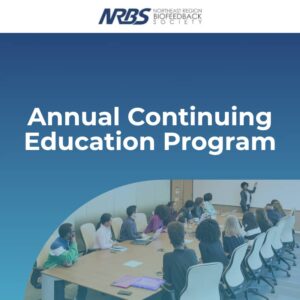Description

Presented by: Lynda Thompson, PhD
DESCRIPTION
This program will cover practical tips that all neurofeedback and/or biofeedback clinicians can apply for increased success. It covers what has been learned and fine-tuned during thirty years of clinical practice. The presentation will address common ethics oversights and methods to ensure psychologists engage in ethical practice, including consideration of a holistic approach that does not extend beyond a psychologist’s area of expertise.
Learning Objectives
1. List 5 areas that can be included in a treatment plan that can be done at home to enhance the success of neurofeedback and biofeedback done in the clinic.
2. Name and acquire a basic understanding of two newer adjunctive interventions (tDCS and photobiomodulation) that can be done alongside neurofeedback and biofeedback to further enhance outcomes.
3. Describe the difference between manually setting and changing thresholds for rewards during training vs. using auto-thresholds.
BIOGRAPHY
Lynda Thompson, Ph.D. is a psychologist who has done teaching, clinical psychology, school psychology and owned learning centers. She became the executive director of The ADD Centre in Toronto in 1993 after discovering the world of neurofeedback and deciding to specialize in that intervention. Her doctoral dissertation dealt with hyperactive children treated with methylphenidate. She is co-author with William Sears of The A.D.D. Book: New Understandings, New Approaches to Parenting Your Child. She has published 9 book chapters and 14 journal articles with an emphasis on ADHD, Apserger’s Syndrome, seizure disorders, and stress management. Dr. Thompson has lectured in 25 countries and presents frequently at professional meetings.
DIVERSITY STATEMENTS
The presentation content respects and attends to cultural, individual, and role differences, specifically related to the Topic of presentation within Specific populations, as evidenced by the title, program description, learning objectives, and references. This presentation will include mention of the obstacles related to populations with financial limitations and those that are limited based on geographic location. The topics discussed apply to all races, genders and most ages (>5 years) equally. The widely used EEG normative databases do not differ according to race or ethnicity or sex: the norms differ only according to age.




